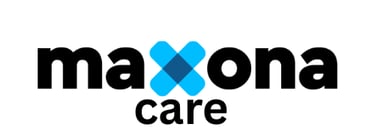Agency vs. Independent Caregivers: Which Is Right for You?
Agency vs. independent caregivers: pros & cons. Compare training, reliability & oversight to make the best in-home care choice in Cedar Falls.
Dr. Aishat O. MPH
7/16/20253 min read


When it comes to arranging in-home support, families often debate whether to hire through a licensed home care agency or bring on an independent caregiver directly. Both options can deliver compassionate, capable caregivers—but they differ significantly in terms of cost, oversight, flexibility, and liability. Understanding these distinctions will help you choose the model that best fits your loved one’s needs, your budget, and your peace of mind.
1. Hiring through a Home Care Agency
How it works: You contract with a licensed agency—such as Maxona Care—that employs, screens, and manages caregivers. The agency handles payroll, background checks, training, and insurance, then invoices you for services.
Pros
Comprehensive Screening & Training: Agencies conduct criminal and driving‐record checks, verify references, and require standardized training (e.g., dementia care, first aid).
Liability & Insurance: Caregivers are covered by the agency’s workers’ compensation and liability policies—protecting you from legal or financial exposure if an injury occurs.
Backup Coverage: When your regular caregiver is sick or on vacation, the agency provides a qualified substitute seamlessly.
Clinical Oversight: Licensed nurses or care coordinators supervise care plans, conduct regular quality reviews, and adjust services as needs evolve.
24/7 Support: Agencies offer an on-call line for emergencies, scheduling changes, or urgent clinical questions, even on weekends and holidays.
Cons
Higher Hourly Rates: Agency overhead—administration, insurance, training—typically pushes rates higher (often $30–$40/hr).
Less Direct Control: You work through the agency’s scheduling system and policies, which can limit your ability to select or discipline individual caregivers.
Minimum Shift Requirements: Many agencies enforce minimum-hour engagements (e.g., 3-4 hour blocks) and holiday premiums.
2. Hiring an Independent Caregiver
How it works: You recruit, vet, and hire a caregiver directly—handling all aspects of payroll, scheduling, training, and supervision on your own.
Pros
Lower Hourly Costs: Without agency overhead, independent caregivers often charge $18–$25/hr.
Direct Relationship: You choose your caregiver based on interviews, and can build a more personal rapport without intermediary policies.
Scheduling Flexibility: You set hours and tasks directly, potentially even on very short notice.
Cons
Hiring & Management Burden: You must conduct background checks, verify credentials, and oversee ongoing training—tasks that require time and expertise.
Liability Risks: Unless you purchase your own workers’ comp and liability insurance, you may be responsible if the caregiver is injured or causes damage.
No Backup Guarantee: If your caregiver is unavailable, you must scramble to find a replacement—potentially leaving gaps in care.
Limited Oversight: Without clinical supervisors, there’s no formal mechanism to audit care quality, enforce performance standards, or handle grievances.
3. Key Decision Factors
Level of Care Complexity
High-Touch Needs (Dementia, Post-Surgical, Medical Monitoring): An agency’s clinical oversight and specialized training are invaluable.
Basic Companion or Light Homemaking: An independent caregiver with a solid reference history may be sufficient.
Budget Considerations
Tight Budgets: Independent caregivers can stretch limited funds, but factor in your time investment for hiring and management.
Value of Peace of Mind: If you prefer to offload administrative and liability concerns, the agency premium may be worth it.
Risk Tolerance & Liability
Risk-Averse Families: Agency-employed caregivers minimize legal exposure and ensure coverage if injuries occur.
Comfort with Direct Management: If you’re comfortable navigating payroll, insurance, and supervision, an independent hire can work.
Long-Term Reliability
Consistent, Ongoing Care: Agencies excel at continuity—critical for clients who need decades-long support or live in remote areas.
Short-Term or Trial Engagements: Independents can be easier to contract for brief, one-off assignments.
4. Hybrid Approaches
Many families choose a blended model to enjoy the best of both worlds:
Core Agency Coverage + Independent Backups: Use an agency for primary shifts, then supplement with a trusted private aide for extra hours or weekends.
Independent Care with Agency Support: Hire independently but contract an agency on retainer for emergency backup—ensuring no gaps if your caregiver is unavailable.
5. Making Your Choice
Define Your Needs: List required tasks, medical complexity, and desired hours.
Compare Total Costs: Calculate agency quotes (including premiums) versus projected independent-hire expenses (including insurance).
Evaluate Your Bandwidth: Be honest about time and expertise available for hiring, training, and supervising someone yourself.
Weigh Your Peace of Mind: Determine how much value you place on clinical oversight, liability protection, and guaranteed backups.
Test & Adapt: Consider a short-term trial—start with one agency shift or a brief independent hire—to see which model feels right before committing long-term.
Conclusion
Neither option is universally “better”—it’s about matching the model to your care complexity, budget, and management preferences. Whether you partner with an established agency like Maxona Care or engage an independent caregiver, the ultimate goal remains the same: providing safe, supportive, and compassionate care that keeps your loved one thriving at home.
Looking for guidance or cost estimates?
Contact Maxona Care at (470) 756-1751 or visit www.maxonacare.com for a no-obligation consultation. We’ll help you compare options and design a care solution perfectly tailored to your family.
Quality home care services for daily living support.
Support
SUBSCRIBE
admin@maxonacare.com
470-756-1751
©2025 Maxona Care LLC All rights reserved.


